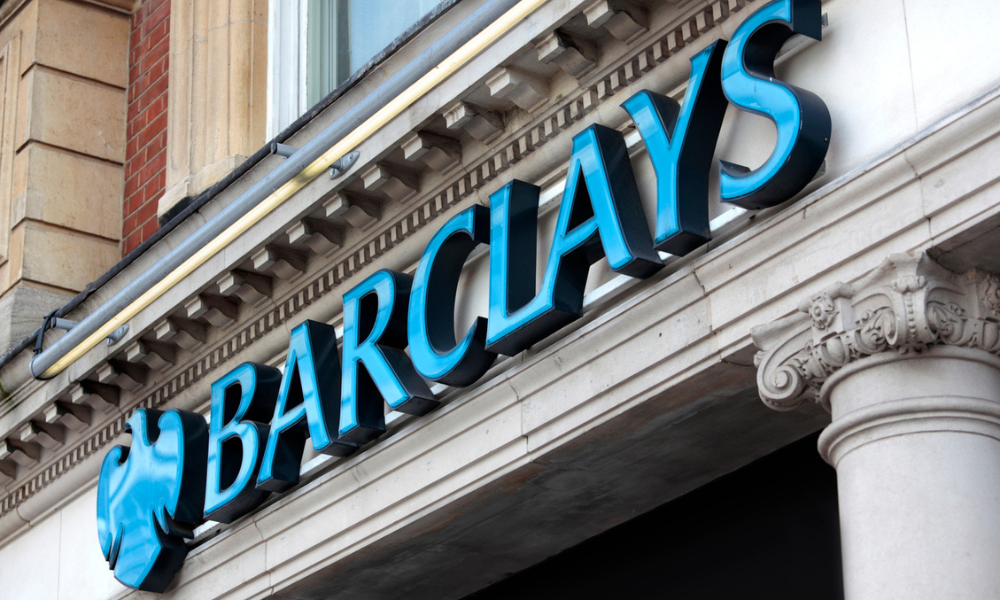

Barclays Plc is planning to hand dozens of the lowest performers within its investment bank no bonus at all, a move that threatens to complicate executives’ efforts to rebuild the advisory unit.
Executives are also planning to shrink the firmwide bonus pool amid a persistent slump in dealmaking and capital markets activity, according to people familiar with the matter. Junior bankers largely won’t be impacted by the moves and top dealmakers might still see an increase of as much as 10%, the people said, asking not to be identified discussing personnel information.
A Barclays spokesperson declined to comment.
The brutal bonus round comes at a precarious time for Barclays’s investment bank. In the coming weeks, Chief Executive C.S. Venkatakrishnan is planning to unveil a series of new financial targets for the British bank, which has seen its stock price lag rivals. The firm’s investment bank — and how much capital it consumes relative to other parts of the lender — is expected to be in focus at the investor event.
For most banks, giving staffers no bonus at all — a process known as getting “zeroed out” or receiving a “goose egg,” a “doughnut” or a “bagel” — is done sparingly and is typically done if a company wants to speed up attrition among its lowest performers.
But Barclays has had to turn to the practice for large swaths of its investment bankers just as executives have spent months trying to recover from a period of higher-than-usual attrition last year, which saw dozens of bankers depart for rivals. Those moves came after the lender appointed Cathal Deasy and Taylor Wright to run the investment bank.
After those departures, Deasy and Wright were forced to go on a charm offensive to retain and recruit bankers for key industries by offering guaranteed bonuses and paying more to those who threatened to leave, according to the people familiar with the matter.
The company ultimately recruited dozens of managing directors and directors across the banking division. But those moves further depleted the bonus pool this year, frustrating bankers who stayed, the people said. Executives now fear it may trigger another wave of departures just as capital markets are poised to bounce back, they said.
Barclays isn’t alone in slashing its bonus compensation for bankers as merger-and-acquisition activity remained muted for much of the year in 2023. On average, merger advisers are expected to see their payouts for 2023 slide as much as 25%, according to the compensation consultant Johnson Associates Inc.
That’s because bankers are paid on an “eat what you kill” model. At Barclays, dealmaking and underwriting businesses are expected to bring in just £1.86 billion ($2.34 billion) for the year, according to analyst estimates compiled by Bloomberg. That would mark a 16% drop from a year earlier and it’s roughly half of what they brought in for 2021.
“It’s been similar to what we experienced in Q2 and Q3 — not quite enough volatility for markets, but a little too much for banking,” Marina Shchukina, head of investor relations, said of the firm’s fourth-quarter results at an event in January. “We hope the recovery will be forthcoming in 2024.”
Even so, the decision to once again curtail compensation comes after Barclays bankers experienced a similarly dismal season for bonuses just last year, when the bank considered cutting bonus pools for their investment bankers by as much as 40%.
In 2022, Barclays ultimately said it granted £1.79 billion in total incentive compensation, which was an 8% decline from the £1.95 billion it offered a year earlier. That figure includes bonuses for traders and other parts of the firm.
Legions of Wall Street staffers rely on their annual bonuses because they are typically many multiples of their annual salary and can stretch into millions of dollars. Bankers and traders spend months counting on their bonuses to pay for tony private schools and club memberships.
The size of Barclays’s investment bank has long been a source of debate among investors because it consumes large amounts of capital compared with other, higher-returning parts of the bank’s business. Venkatakrishnan has said Barclays will likely have to grow other divisions such as retail banking in order to shrink the investment banking unit’s share of the firm’s overall business and boost its share price. On Friday, Barclays announced it will acquire much of Tesco Plc’s banking business in a move that will give it £4.2 billion of credit-card receivables and £6.7 billion in customer deposits.
“For you to get the right valuation, for that it has to be a proportionally smaller part of your bank,” Venkatakrishnan said at an event hosted by the Wall Street Journal last month. “We’ve got to make the other divisions of the bank as strong as the IB.”

The Wall Street giant has blasted data middlemen as digital freeloaders, but tech firms and consumer advocates are pushing back.

Research reveals a 4% year-on-year increase in expenses that one in five Americans, including one-quarter of Gen Xers, say they have not planned for.

Raymond James also lured another ex-Edward Jones advisor in South Carolina, while LPL welcomed a mother-and-son team from Edward Jones and Thrivent.

MyVest and Vestmark have also unveiled strategic partnerships aimed at helping advisors and RIAs bring personalization to more clients.

Wealth management unit sees inflows of $23 billion.
Orion's Tom Wilson on delivering coordinated, high-touch service in a world where returns alone no longer set you apart.
Barely a decade old, registered index-linked annuities have quickly surged in popularity, thanks to their unique blend of protection and growth potential—an appealing option for investors looking to chart a steadier course through today's choppy market waters, says Myles Lambert, Brighthouse Financial.
